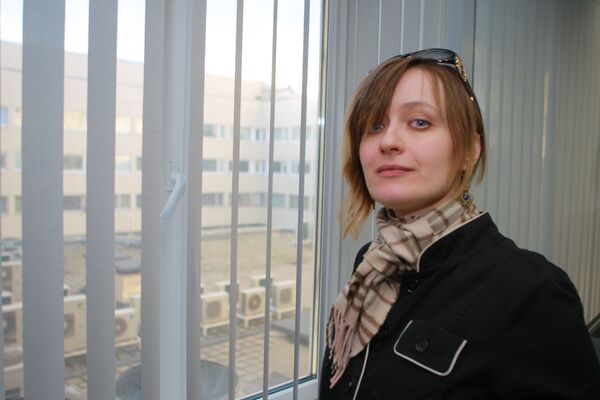Traumatic weapons routinely make headlines in Russia - mostly when they’re used in a fight that results in someone dying or getting seriously hurt.
One of the most egregious recent cases involving a traumatic pistol was the one that actually sparked last year’s nationalist riots on Moscow’s Manezhnaya Square - after an argument between some Muscovites and men of North Caucasus origin got dangerously out of hand. Young football fan Yegor Sviridov died when Aslan Cherkesov shot him with a traumatic pistol at close range. Cherkesov has since been sentenced to 20 years in prison.
Another recent case that made headlines was the shooting of Russia Today journalist Natalia Arkhiptseva in a Moscow restaurant. Natalia became understandably offended when a drunk businessman, Sergei Virolainen, made degrading comments of a sexual nature as she walked by. When Natalia protested, Virolainen whipped out a traumatic pistol and shot her in the foot - he has since been sentenced to a year in prison.
In Russia, traumatic weapons are routinely used to escalate an already tense situation. So why do so many people carry them?
There is a simple answer: it’s much easier to legally obtain a traumatic pistol than an actual gun. Because they are designed to be non-lethal, they don’t require all the traditional red tape.
The not-so-simple answer is this: most Russians just don’t feel safe enough without a weapon of some kind. Trust in law enforcement remains low and the streets are not considered particularly safe. Anyone who has been the victim of harassment or a mugging is encouraged to invest in a traumatic weapon.
Traumatic weapons are referred to as “self-defense weapons” in Russian. As a woman, I’ve been told I ought to carry one if I “don’t want to get raped.” That’s an exact quote. My neighbor suggested a traumatic weapon when I complained about sexual harassment near the Paveletskaya train station in downtown Moscow. When I said I was worried about the possible risks - after all, you need to know how to use a gun, otherwise it will most likely get snatched out of your hands and be used against you - he suggested training.
“Or maybe you think the cops will protect you?” He went on grimly. “Ha ha.”
I’ve actually had mixed experiences with police officers in Moscow - some are just horrible human beings, empowered by the state to do whatever they want to you, and others are helpful and polite. Most of them, coincidentally, discourage purchasing a traumatic weapon, unless some serious training is also in the works. Still, they acknowledge that this kind of weapon has become an almost standard accessory for people who think that pepper spray and electroshock weapons just won’t do the trick.
Who can blame people for being paranoid, nowadays? In Moscow, everyone is constantly freaked out, because people live on top of each other and a criminal could be an arms length away. Outside the cities, everyone is constantly freaked out, because people are more spread out - and your neighbors won’t hear you scream (or they will hear you scream, and not particularly care either way). The news, meanwhile, bombards us with tragedy after tragedy.
In this light, a traumatic weapon acts as a kind of medicine. You can place your hand on its cool handle and imagine that everything is under control. Who knows, you may even be right. The same neighbor who encouraged me to get a traumatic weapon trained his wife to use one. And then she scared off an attacker at their countryside dacha earlier this year.
“Scared” is the operative word here. A traumatic weapon is a weapon against fear and a weapon of fear - in equal measure.
The views expressed in this article are the author's and do not necessarily represent those of RIA Novosti.
Trendswatcher: Buying into the car craze - for sanity’s sake
Trendswatcher: A nice day for a ZAGS wedding
Trendwatching in Russia is an extreme sport: if you’re not dodging champagne corks at weddings, you’re busy avoiding getting trampled by spike heels on public transportation. Thankfully, due to an amazing combination of masochism and bravado, I will do it for you while you read all about it from the safety of your living room.
Natalia Antonova is the deputy editor of The Moscow News. She also works as a playwright – her work has been featured at the Lyubimovka Festival in Moscow and Gogolfest in Kiev, Ukraine. She was born in Ukraine, but spent most of her life in the United States. She graduated from Duke University, where she majored in English and Slavic Literature. Before coming to Moscow, she worked in Dubai, UAE and Amman, Jordan. Her writing has been featured in The Guardian, Foreign Policy, Russia Profile, AlterNet, et al.
*

